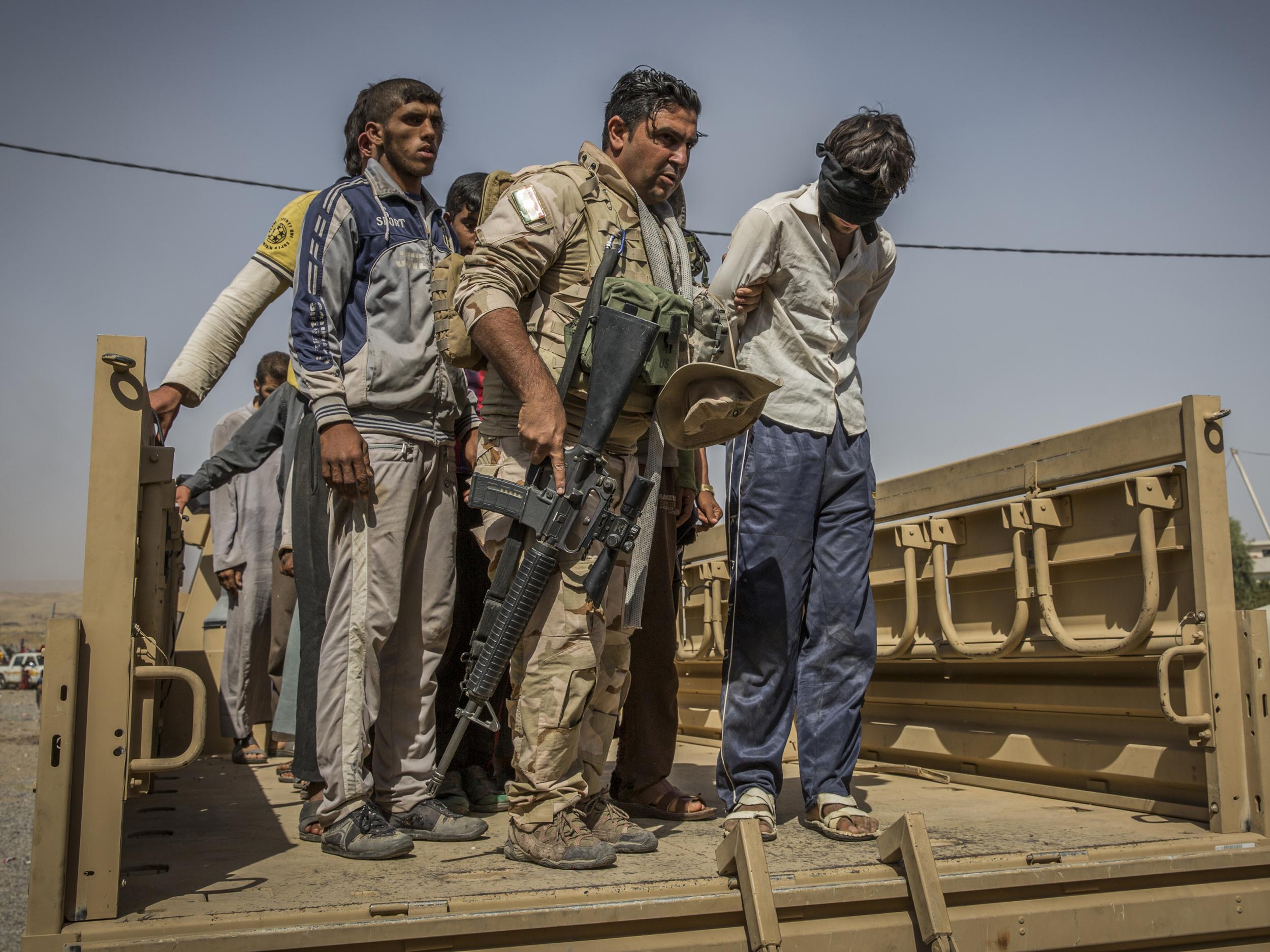Captured Isis fighters seek to evade justice by insisting: 'I was only a cook'
Fleeing militants disguise themselves as civilians in bid to escape Iraqi liberating forces

Your support helps us to tell the story
From reproductive rights to climate change to Big Tech, The Independent is on the ground when the story is developing. Whether it's investigating the financials of Elon Musk's pro-Trump PAC or producing our latest documentary, 'The A Word', which shines a light on the American women fighting for reproductive rights, we know how important it is to parse out the facts from the messaging.
At such a critical moment in US history, we need reporters on the ground. Your donation allows us to keep sending journalists to speak to both sides of the story.
The Independent is trusted by Americans across the entire political spectrum. And unlike many other quality news outlets, we choose not to lock Americans out of our reporting and analysis with paywalls. We believe quality journalism should be available to everyone, paid for by those who can afford it.
Your support makes all the difference.Thousands of civilians fleeing the Iraqi military’s push to evict Isis from its last major urban stronghold in Iraq now include hundreds of suspected fighters for the extremist group, dirty and dishevelled, who arrive at checkpoints claiming innocence and begging for mercy.
While civilians from the stronghold, the city of Hawija, have sought safety in Kirkuk and elsewhere in Iraq’s Kurdish region, this weekend was the first time they came in large numbers with men of fighting age.
According to Iraqi Kurdish officials in Kirkuk, 90 percent of these men are suspected of having been Isis fighters — including some who may have committed atrocities — and they are being aggressively interrogated.
Iraqi Kurdish officials were taking no chances on Sunday as they prepared one suspected fighter in a small office as his wife and four children squatted on the dirt outside.
A lieutenant in the Asayish, the Iraqi Kurdish region’s intelligence service, put one hand on his holstered pistol and pointed with the other hand at a spot on the tiled floor. The prisoner understood and knelt on that spot, as an Asayish corporal tied the man’s hands behind his back with a scarf.
“It doesn’t matter what you do, I’m not going to spy for you,” said the man, Salah Hassan, 32, who described himself as a former construction worker.
“We don’t care about that,” the lieutenant said. “Just tell the truth.”
“Yes, tell them you’re Isis,” the corporal said, brandishing a pipe in the prisoner’s face. “Don’t lie.”
Hassan hung his head and admitted it, then looked up. “I was only a cook.”
The lieutenant laughed good-naturedly. “Tens of them tell me they were cooks,” he said.
The Iraqi offensive against the Islamic State in Hawija began on 21 September and is in its final stages, Iraqi officials say. The army and police, backed by Shiite militias, are close to retaking the city, which is believed to still have 78,000 residents — and up to 3,000 Isis fighters.
Iraqi Kurdish officials are intent on identifying any known fighters among the arriving men who may be linked to atrocities. Any with charges against them would be sent to court, while the others would eventually be allowed to rejoin their families in camps inside Iraq’s Kurdish region.
The New York Times
Join our commenting forum
Join thought-provoking conversations, follow other Independent readers and see their replies
Comments